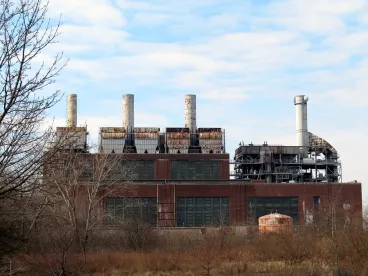Key Takeaways
-
On September 18, 2020, New Jersey Governor Phil Murphy signed landmark environmental justice legislation into law. The law (S232), which the state legislature passed last month, requires the New Jersey Department of Environmental Protection (“NJDEP” or the “Department”) to identify the state’s “overburdened communities,” and only grant or renew permits for certain facilities after determining that there is no disproportionate, cumulative environmental impacts on those communities.
-
The law imposes new requirements for obtaining permits for “facilities” located in overburdened communities, including facilities that are major sources of air pollution (as defined under the Clean Air Act); resource recovery facilities or incinerators; sludge processing facilities, combustors, or incinerators; large sewage treatment plants; transfer stations, large recycling facilities, and landfills; and other industrial facilities.
-
According to a press release from Gov. Murphy’s office, approximately 310 municipalities in the state with estimated populations totaling 4,489,000 have overburdened communities within their municipalities.
Context
New Jersey made history by passing the first-of-its-kind environmental justice legislation, which imposes “environmental justice” requirements on permit applicants in the state. The new law requires applicants seeking to permit a covered facility near an overburdened community to submit an environmental justice-specific impact statement and hold public hearings. The NJDEP may not consider the permit application without the required impact statement and must evaluate the cumulative impacts of the facility on overburdened communities before approving the application or permit renewals. Previous iterations of the law stalled in the legislature in recent years, underscoring the significance of it finally becoming law.
The Details
The law’s coverage and requirements are the most far-reaching environmental justice legislation in the country, requiring an “Environmental Justice Impact Statement” in initial permit applications and permit renewals for covered facilities located in overburdened communities. The Environmental Justice Impact Statement must include an evaluation of any environmental and public health stressors the facility cannot avoid, as well as any existing environmental and public health stressors already borne by the overburdened community. In addition, permit applicants must conduct a public hearing in the overburdened community, accept oral and written comments from any interested parties, and submit a transcript of the public hearing to NJDEP. The Department will assess an additional fee to applicants to support the expanded environmental justice review, as well as provide advisory resources to overburdened communities during the public engagement process.
Once permit applicants submit the Environmental Justice Impact Statement, hearing transcript, and public comments, NJDEP must formally consider the materials in its decision-making process. Upon finding that the facility would disproportionately impact overburdened communities more than others, the Department must deny the permit application unless it will “serve a compelling public interest in the community where it is to be located.” Additionally, NJDEP has the authority to approve a permit subject to conditions that mitigate the disproportionate impacts.
Under the law, “overburdened communities” are defined as any Census block group with low-income, minority, or non-English speaking populations exceeding specified thresholds. The NJDEP has 120 days from the law’s effective date to publish a list of overburdened communities, which it must update once every two years. Further, “facilities” include: any major source of air pollution under the Clean Air Act; resource recovery facilities or incinerators; sludge processing facilities, combustors, or incinerators; sewage treatment plants with a capacity exceeding 50 million gallons per day; solid waste facilities, transfer stations, and recycling facilities intending to receive at least 100 tons of daily recyclable material; scrap metal facilities; landfills; and specified medical waste facilities.
New Jersey Environmental Justice Regulation and Enforcement Trends
Over the course of the past decade, lawmakers have introduced similar environmental justice bills in the legislature, but each attempt has died in committee. The Murphy Administration, however, has prioritized environmental justice, implementing a number of statewide EJ initiatives. The law promises to have far-reaching implications for industry, environmental justice communities, and other stakeholders, including serving as a model for the federal government and a growing number of states considering environmental justice bills.
New Jersey’s actions further a larger trend in the state’s efforts to promote environmental justice. On the same day that Gov. Murphy signed S232 into law, New Jersey Senator Cory Booker introduced environmental justice legislation in Senate (Environmental Justice Legacy Pollution Cleanup Act). Similarly, on the day that the state legislature passed S232, NJDEP and the New Jersey Attorney General announced 12 new environmental justice enforcement actions targeting environmental contamination in minority and low-income neighborhoods. This followed similar environmental justice enforcement announcements in the state in recent months. This series of enforcement actions, as well as the new EJ law, show a state determined to amplify its commitment to environmental justice protection and enforcement.
Although Gov. Murphy signing the bill into law is indisputably significant, the full extent of the law’s impact remains to be seen. The law directs NJDEP to adopt implementing rules, regulations, and guidance, which will be important indicators of how the state plans to view the application of this unprecedented law. Industry stakeholders should modify their business practices to account for these sweeping new changes.





 />i
/>i
